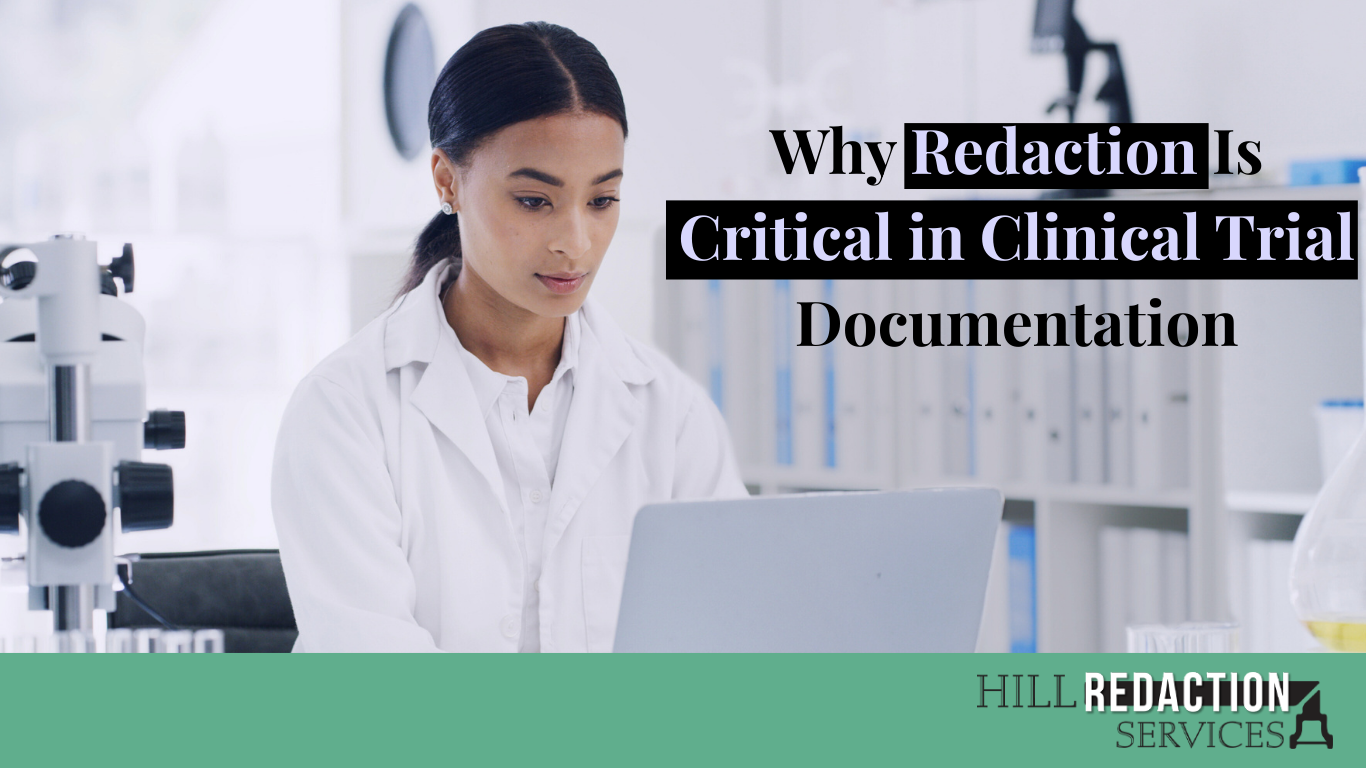
Health Law – Redaction and Health Law
In the field of health law, the importance of redaction cannot be overstated. Redaction refers to the process of removing or masking sensitive information from documents, ensuring the protection of personal data, and maintaining confidentiality. In the context of clinical trials, redaction plays a crucial role in safeguarding patient privacy, maintaining data integrity, and promoting transparency.
What is Redaction?
Redaction is an anonymization technique that involves masking or obscuring sensitive data within documents. It ensures that confidential information such as patient identities, medical histories, and other personally identifiable information (PII) remains hidden from public view. Redaction is typically achieved through the use of advanced analytics techniques like Natural Language Processing (NLP) and visual overlay tools.
The Importance of Redaction in Clinical Trials
1. Protecting Patient Privacy: Clinical trials involve the collection of sensitive personal data from participants. Redaction helps maintain patient privacy by removing any identifiable information from documents before they are shared or published. This is essential for complying with data protection regulations and ethical considerations.
2. Ensuring Data Integrity: Redacting sensitive information eliminates the risk of potential bias or discriminatory practices. By removing any personal identifiers, the focus shifts solely to the scientific and clinical aspects of the trial, ensuring that the evaluation process remains objective and unbiased.
3. Promoting Transparency: Redaction allows for the transparent sharing of clinical trial data without compromising patient confidentiality. It enables researchers, regulatory bodies, and the public to access important trial information while protecting the identities and personal details of participants.
4. Preventing Unwanted Disclosures: Redaction plays a vital role in preventing unintended disclosures of confidential information. By carefully examining and redacting documents, researchers can ensure that no inadvertent release of sensitive data occurs, thereby mitigating potential legal and ethical risks.
5. Complying with Regulatory Requirements: Clinical trials are subject to strict regulatory guidelines regarding data protection and privacy. Redaction helps organizations comply with these regulations, such as HIPAA and GDPR. Challenges and Considerations While redaction plays a crucial role in ensuring data protection and confidentiality, there are specific challenges and considerations to keep in mind:
- Balancing Transparency and Privacy: Striking a balance between transparency and privacy is essential. Redaction should be performed carefully to protect patient privacy while still providing meaningful and transparent information.
- Maintaining Data Accuracy: Redacted documents must maintain their integrity and accuracy. Any redaction process should ensure that vital information necessary for understanding and evaluating the trial remains intact.
- Staying Up-to-Date with Regulations: Health law professionals involved in clinical trials must stay informed about evolving data protection regulations and adapt their redaction practices accordingly.
- Data Retention and Secure Storage: Redacted documents must be securely stored to prevent unauthorized access and potential data breaches. It is crucial to have robust data retention and storage protocols in place to protect sensitive information.
Conclusion
In the world of health law, redaction plays a pivotal role in protecting patient privacy, ensuring data integrity, and promoting transparency in the clinical trial space. By effectively redacting regulatory documents, researchers and organizations can strike a balance between the need for transparency and the obligation to protect sensitive information. At Hill Redaction Services, we understand the importance of redaction in health law and offer comprehensive redaction solutions for clinical trial data. Our team of experts utilizes advanced tools and techniques to ensure compliance with regulations and maintain the highest levels of confidentiality.
Related Posts

Health Law – Redaction and Health Law
In the field of health law, the importance of redaction cannot be overstated. Redaction refers to the process of removing or masking sensitive information from documents, ensuring the protection of personal data, and maintaining confidentiality. In the context of clinical trials, redaction plays a crucial role in safeguarding patient privacy, maintaining data integrity, and promoting transparency.
What is Redaction?
Redaction is an anonymization technique that involves masking or obscuring sensitive data within documents. It ensures that confidential information such as patient identities, medical histories, and other personally identifiable information (PII) remains hidden from public view. Redaction is typically achieved through the use of advanced analytics techniques like Natural Language Processing (NLP) and visual overlay tools.
The Importance of Redaction in Clinical Trials
1. Protecting Patient Privacy: Clinical trials involve the collection of sensitive personal data from participants. Redaction helps maintain patient privacy by removing any identifiable information from documents before they are shared or published. This is essential for complying with data protection regulations and ethical considerations.
2. Ensuring Data Integrity: Redacting sensitive information eliminates the risk of potential bias or discriminatory practices. By removing any personal identifiers, the focus shifts solely to the scientific and clinical aspects of the trial, ensuring that the evaluation process remains objective and unbiased.
3. Promoting Transparency: Redaction allows for the transparent sharing of clinical trial data without compromising patient confidentiality. It enables researchers, regulatory bodies, and the public to access important trial information while protecting the identities and personal details of participants.
4. Preventing Unwanted Disclosures: Redaction plays a vital role in preventing unintended disclosures of confidential information. By carefully examining and redacting documents, researchers can ensure that no inadvertent release of sensitive data occurs, thereby mitigating potential legal and ethical risks.
5. Complying with Regulatory Requirements: Clinical trials are subject to strict regulatory guidelines regarding data protection and privacy. Redaction helps organizations comply with these regulations, such as HIPAA and GDPR. Challenges and Considerations While redaction plays a crucial role in ensuring data protection and confidentiality, there are specific challenges and considerations to keep in mind:
- Balancing Transparency and Privacy: Striking a balance between transparency and privacy is essential. Redaction should be performed carefully to protect patient privacy while still providing meaningful and transparent information.
- Maintaining Data Accuracy: Redacted documents must maintain their integrity and accuracy. Any redaction process should ensure that vital information necessary for understanding and evaluating the trial remains intact.
- Staying Up-to-Date with Regulations: Health law professionals involved in clinical trials must stay informed about evolving data protection regulations and adapt their redaction practices accordingly.
- Data Retention and Secure Storage: Redacted documents must be securely stored to prevent unauthorized access and potential data breaches. It is crucial to have robust data retention and storage protocols in place to protect sensitive information.
Conclusion
In the world of health law, redaction plays a pivotal role in protecting patient privacy, ensuring data integrity, and promoting transparency in the clinical trial space. By effectively redacting regulatory documents, researchers and organizations can strike a balance between the need for transparency and the obligation to protect sensitive information. At Hill Redaction Services, we understand the importance of redaction in health law and offer comprehensive redaction solutions for clinical trial data. Our team of experts utilizes advanced tools and techniques to ensure compliance with regulations and maintain the highest levels of confidentiality.





